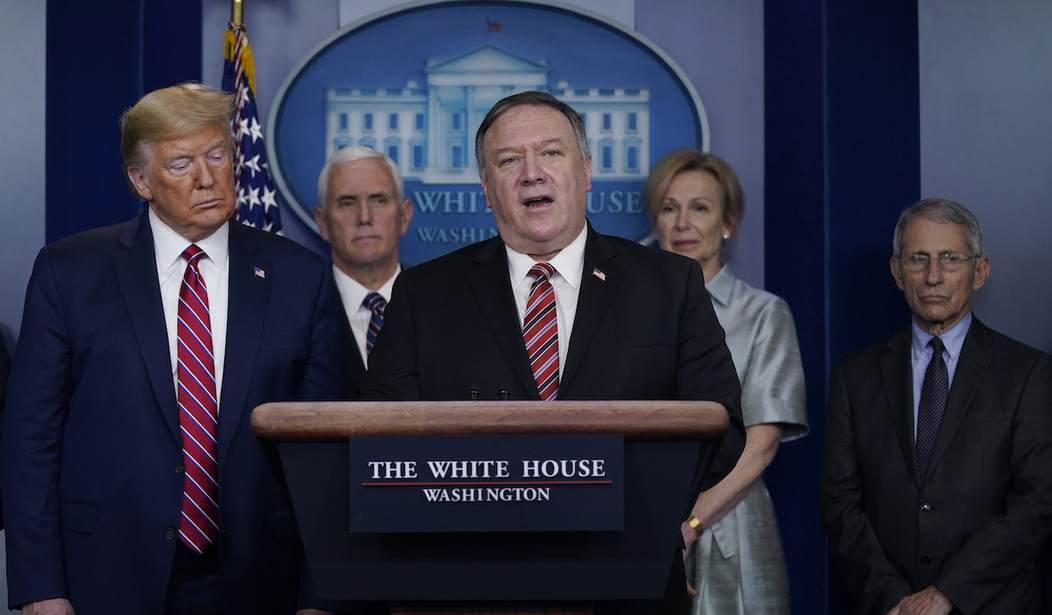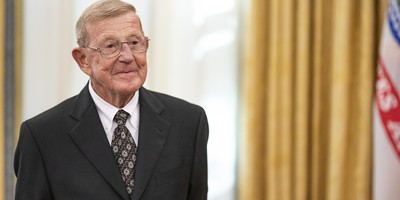Secretary of State Mike Pompeo has said religious freedom is the United States’ top foreign policy priority.
President Trump warned Nigerian President Muhammadu Buhari in a 2018 visit to Washington to stop attacks on religious freedom, particularly on Christian churches in his country, if he wanted cooperation with the United States.
Members of Congress have complained the U.S. government has not done enough to get Nigeria’s government to step up and prevent religious and press persecution.
But after some early progress, things have gotten bad for Christians in Nigeria. Nearly 400 have been killed this year for their faith, and more than 12,000 have died since Buhari took office in 2015. A U.S.-based reporter, Omoyele Sowore, who was detained, released, then re-arrested a day later for looking into corruption involving the regime, remains in custody.
The U.S. knows of these problems. Late last year, after a group affiliated with Boko Haram and ISIS beheaded 10 Nigerians and shot another, the State Department declared Nigeria a “severe violator of religious freedom” and put it on a Special Watch List for such countries.
But unless things change in the next few days, the U.S. will pass on a significant opportunity to strike a blow for freedom of religion and of the press in Nigeria.
The U.S. has entered into an agreement with Nigeria and the UK-dependent Bailiwick of Jersey to return $350 million that was looted by former Nigerian dictator Sani Abacha and co-conspirators. It also is involved in negotiations to secure another $120 million of purloined funds.
Sen. Chuck Grassley, R-Iowa, chairman of the Senate Finance Committee, has said the U.S. should withhold the funds until we get assurances the people of Nigeria will benefit from our efforts and that the human rights questions will be addressed.
Recommended
He has asked the Justice Department “what steps has the United States government taken to consider whether sanctions would be appropriate against certain individuals such as,” Ibrahim Magu, acting chairman of Nigeria’s Economic and Financial Crimes Commission, and his boss, Attorney General of the Federation Abubakar Malami, under the Global Magnitsky Act, which allows the U.S. to sanction human rights violators, and the Frank R. Wolf International Religious Freedom Act, for having turned their offices into agents of suppression and terror.
Grassley wrote the chief of the Department of Justice’s Money Laundering and Asset Recovery Section to say that, given the Nigerian government’s history of corruption, refusal to assist the U.S. in its battle to recover the $120 million tranche, vow to return that money to an Abacha crony if recovered and reversal of progress on religious and press freedom, “it seems odd that the DOJ would help facilitate the payment of $320 million to the Nigerian government without first insisting on proper safeguards to prevent the further misuse of funds, as well as full cooperation in other forfeiture actions related to the Abacha loot.”
The Department of Justice says the agreement, finalized Feb. 3, includes safeguards to ensure the repatriated money is used for its intended purposes – expressways from Abuja to Kano and Lagos to Ibadan and a second Niger Bridge.
It says the Nigerian Sovereign Investment Authority, which includes no members of the current government, will implement the projects, two oversight bodies with U.S. members will monitor disbursement, and the government has vowed to replace any funds found to not have been properly spent. The Justice Department also says the focus on big infrastructure projects will make it harder to hide if officials do attempt to divert funds.
Abacha is said to have stolen more than $2 billion in the five years he served during the mid-1990s. Abubakar Bagudu, now governor of the Nigerian state of Kebbe, was arrested in Houston in 2003 on charges of embezzlement and corruption for his role in Abacha’s looting. He made a deal with the Justice Department to return to Nigeria in exchange for turning over $160 million in stolen funds.
When he returned to Nigeria, he was not even questioned, let alone forced to return the money. Bagudu said he did “nothing wrong” in requesting the $100 million in the still-unrecovered tranche, and the Buhari government seems inclined to let him receive the money.
The $120 million tranche is not covered by this agreement, but the Justice Department’s response to Grassley specifically named Bagudu as being ineligible to receive any of the $350 million.
The Justice Department said it works to prevent abuse of the U.S. financial system by “international kleptocrats” and is committed to “the transparent return of recovered assets through a negotiated, lawful and open process that will ultimately recompense, in part, the people of Nigeria for the harms they have suffered.”
But unless something changes, and soon, those dollars are going to Nigeria, and it will be up to the U.S., the Bailiwick of Jersey and others to enforce these agreements and make sure the funds go to the projects for which they’re intended. And we’ll have to wait still longer for opportunities to get Nigeria to improve its human rights record.

























Join the conversation as a VIP Member